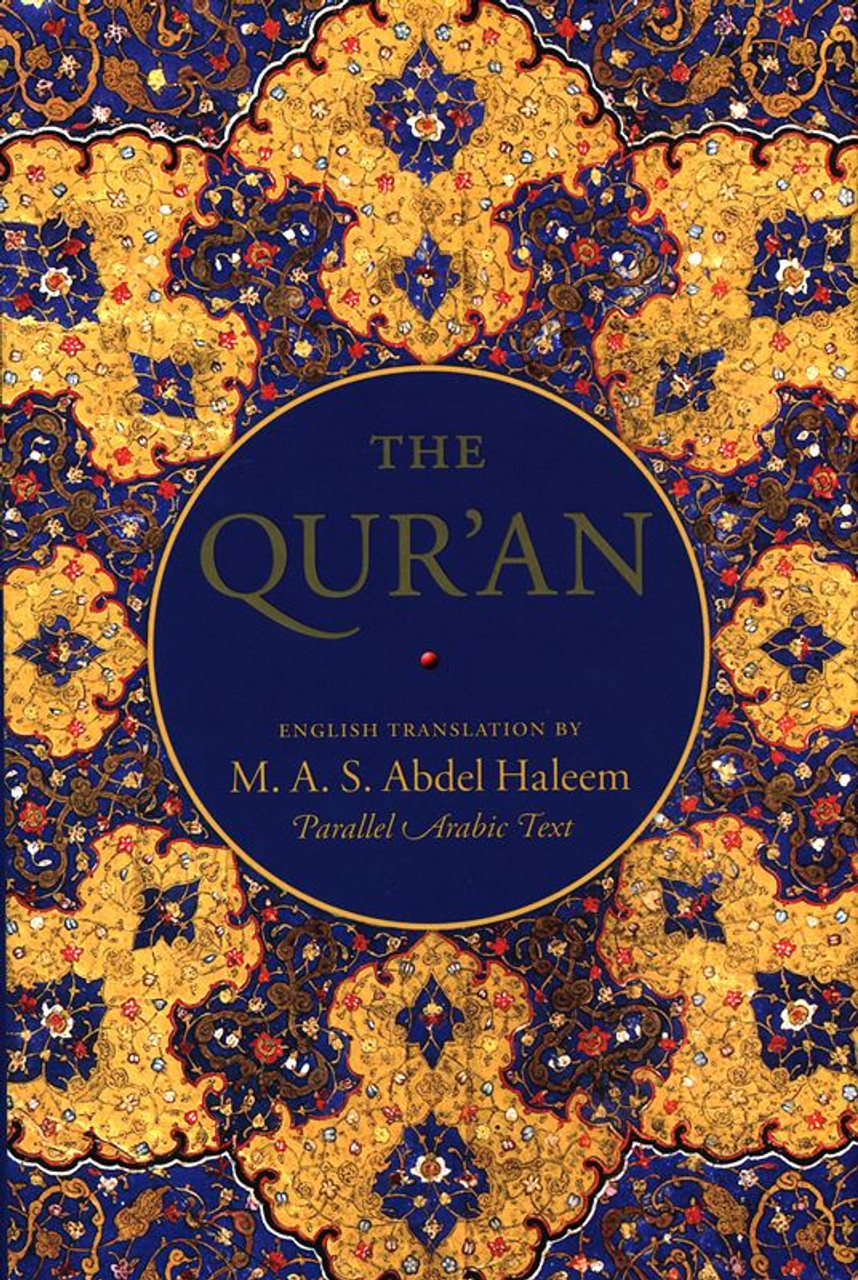

Being a Muslim - Sunni, Shia or whatever - is not just a claim but its worth has to be proved by doing what is useful for the Muslim community and all the world at large. They should forget about historical, racial and political divisions and stand together for what is good for them and for the rest of the world. Any Islamic denomination is closer to the basic Islamic identity and teachings than hostile outsiders. What do you think needs to be done to reduce these problems?Ībdel Haleem: Muslims have to wake up to the fact that so many people in the world are against them and against their religion. IQNA: One of the biggest problems in the Islamic world is the division and disunity among different Islamic schools of thought. Much of what is written and preached in mosques does not fulfil this requirement. IQNA: How do you think the youth of the second and third generations of Muslim immigrants in the West can be encouraged to learn the Quran and its teachings?Ībdel Haleem: It has to be presented to them in a way they can understand and appreciate and in a language that captivates their attention. The Quran is the most fundamental element that should define Muslim identity. IQNA: What about the Muslim community in UK?Ībdel Haleem: Without the Quran, Muslims in the UK will lose their identity and no longer be Muslims.

5:6), all of which is now needed to prevent the spread of coronavirus. Even going back to the level of regularly washing hands, nose, ears and mouth in wudu (Q. The Quran strongly said that you should not break them just because one party has more than the other in terms of wealth, power etc. For instance, being true to one’s contracts, treaties and obligations. There are elements of Islamic teachings which the world now needs more than ever. IQNA: As a Muslim researcher in the UK, to what extent do you think the commandments and teachings of the Quran are applicable in today's worldĪbdel Haleem: It depends on how they are presented. IQNA: Where can one find this translation?Ībdel Haleem: The easiest place is on where it is available in various editions. What I wanted above all was a translation to be read by non-Muslims, since Muslims have enough in Arabic, Persian and so on. This is very important because many of the translations done before were published by small Muslim publishers or for academic consumption only which limited the availability. The Oxford University Press published it. It took seven years altogether to publication alongside all my other duties. IQNA: When did you begin and when did you finish this translation?Ībdel Haleem: (It began in 1997 and finished in 2004). IQNA: Could you provide more information about your translation of the Quran?Ībdel Haleem: It has been noted, in reviews and emails, by many readers, Muslims, Jewish, Christians, Hindus and Atheists to be the first translation that makes them read the Quran. IQNA: What was your biggest challenge along the way?Ībdel Haleem: To find ways of producing the exact meaning of the Quran in effective modern English. Any translation that cannot do this has failed in a fundamental way. The important thing about the Quran in Arabic is that it has a strong impact on the reader. I translated a page and asked them for feedback repeatedly until they found it acceptable, readable and effective. The translations were too literal and unreadable. They said they did not read any of the existing translations because they were written in a language they did not use at school or at university. I asked my students at London University which translation they liked best. What motivated you to translate the Quran?Ībdel Haleem: I found the existing translations not convincing and containing serious inaccuracies. IQNA: You are a translator of the Quran into English. What inspired you to learn the Holy Book by heart?Ībdel Haleem: I come from a family whose father and grandfather were educated at al-Azhar and the first requirement for this was to memorize the Quran. ( I was) born in Egypt, but have been teaching in English universities for many decades.
#Mas abdel haleem quran english and arabic professional#
IQNA: Could you tell us about yourself and your professional experience?Ībdel Haleem: (I am) Muhammad Abdel Haleem, Professor of Islamic Studies at SOAS University, London. Any translation that cannot do this has failed in a fundamental way,” he told IQNA in an interview. “The important thing about the Quran in Arabic is that it has a strong impact on the reader.


 0 kommentar(er)
0 kommentar(er)
